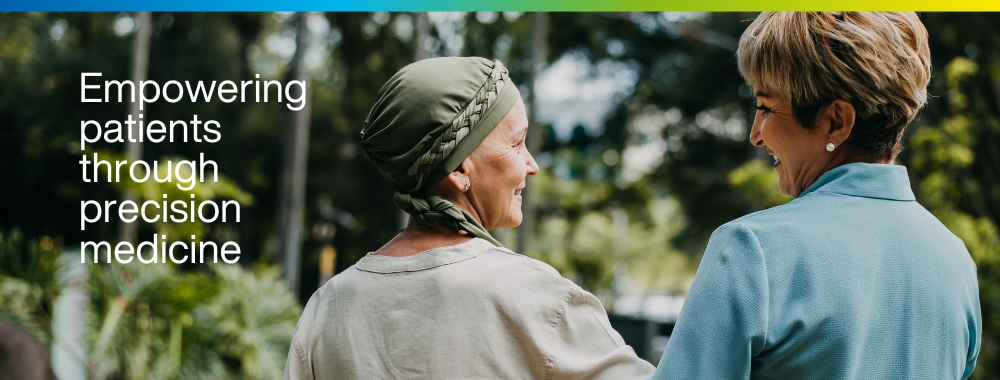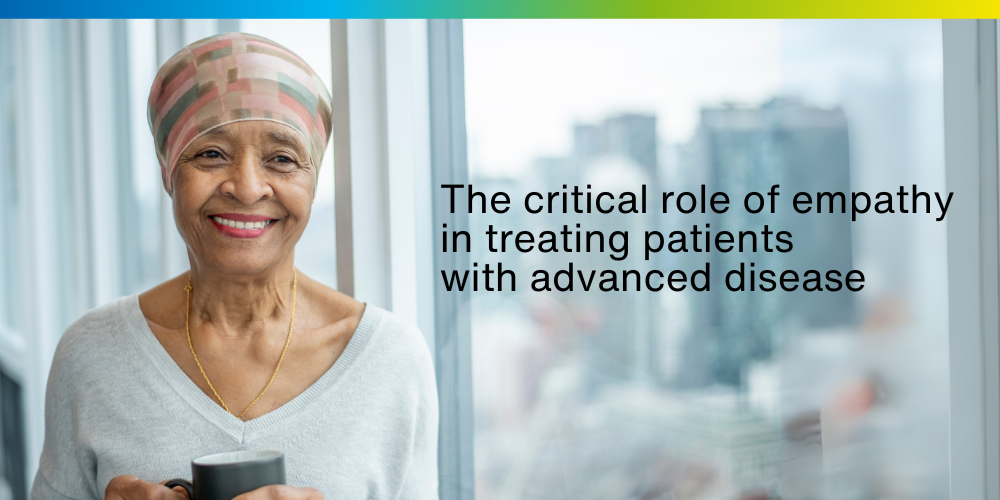The Critical Role of Biomarker Testing in Lung Cancer
The Critical Role of Biomarker Testing in Lung Cancer

Daiichi Sankyo supports “No One Missed” campaign to build awareness, empower patients and break down barriers to this essential step in cancer care.
At Daiichi Sankyo, we see the gaps and we are listening to patients. Beyond patient advocacy groups bringing increased focus to the underutilization of biomarker testing, many patients have directly shared with us that they were not aware it was an option for them.
Why Biomarker Testing is Important in Lung Cancer
An estimated 234,600 new cases of lung cancer will be diagnosed in the U.S. alone during 2024 and about 80 to 85% of lung cancers are non-small cell lung cancer (NSCLC).
There have been significant advancements in the treatment of NSCLC over the past decade. The goal of precision medicine, an approach that aims to provide more personalized and effective treatment options, is being realized with the introduction of targeted therapies for certain types of cancer, including NSCLC. These new therapies are designed to target specific cancer biomarkers—genetic and molecular mutations that cause the cancer to grow and spread.
A number of genetic and molecular mutations have been discovered in NSCLC, leading to the development of targeted therapies that have improved outcomes for some patients.
Most Effective, Personalized Treatments
To help identify patients who could benefit from targeted therapies, predictive biomarker testing is an essential step in cancer care.
Once a cancer diagnosis is confirmed, comprehensive biomarker testing is routinely conducted using a biopsy or blood test to provide doctors with more information about the cancer, including whether there are signs of genetic or molecular mutations. Identifying any biomarkers in tumors can help determine initial treatment and whether the patient may be a candidate for targeted therapy.
Biomarking testing is especially important for anyone diagnosed with NSCLC. Approximately 50% of patients with adenocarcinoma may have an actionable genomic alteration. However, access to the treatments is dependent on timely biomarker testing to identify “actionable” targets.
Efforts to Educate and Raise Awareness
Biomarker testing is still not uniformly conducted and there are testing gaps for patients diagnosed with advanced NSCLC, which likely extend to other cancers. That’s why we’re working with several of our patient advocacy partners, including LUNGevity, to listen and engage with our patients. By understanding the barriers they face, together we can develop solutions that support the patient community.
As a member of the No One Missed campaign from LUNGevity, which is composed of 25+ organizations working to build awareness about biomarker testing and empower patients, we’re taking steps to break down those barriers. The program, which is currently focused on lung cancer and breast cancer, also provides information for physicians.
“We want all people with lung cancer to have the best possible outcomes, and we view biomarker testing as crucial to that goal,” according to Dr. Amy Moore, Vice President of Global Engagement and Patient Partnerships at LUNGevity Foundation. “Not all lung cancers are the same,” explained Dr. Moore. “Everyone diagnosed with lung cancer has the right to better understand their disease by testing for all relevant biomarkers for their type and stage of lung cancer.”
Dr. Moore encourages people with lung cancer to Talk, Test, Treat. “Talk to your healthcare team about performing comprehensive biomarker testing and review your results with your doctor to give you the information you need to develop an individualized treatment plan together.”
Help Spread the Word
Learn more about biomarker testing at LUNGevity.org . Together, we can help spread awareness and educate around the importance of biomarker testing.
OurStorySuggestions
Suggestions
Each patient journey is unique for those faced with a breast cancer diagnosis. At Daiichi Sankyo, we strive to deepen our understanding beyond the scientific aspects, distinguishing between the personal needs of patients with early-stage versus metastatic breast cancer.
View moreInformed patients are empowered patients. Which is why helping people with cancer understand their disease, as well as how available treatment options might work for them, is a critical focus of our patient advocacy efforts.
View moreFor cancer patients, the science concerning their disease is sometimes outside of reach. As a patient-centric organization, we are on a mission to break down those barriers.
View more

